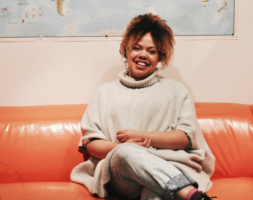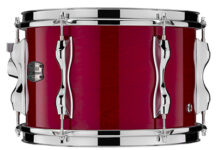
‘An empowering environment to inspire creativity’: Saffron Records founder Laura Lewis-Paul on the label’s all-female music production courses
Women are said to make up 5-7% of the audio workforce, although an official figure isn’t yet known. What can we do to make sure future generations work in a more representative workplace?
Why aren’t there more women working in the audio industry? Despite contributing to seminal work behind the desk since the mid 20th century, the number of women working in the industry today is still staggeringly low. If you’re after specifics, it’s still hard to estimate just how many women work in audio. A survey conducted in 2016 by the Audio Engineering Society found that 7% of its members were women, but as respondents weren’t obliged to disclose their gender, the number isn’t totally accurate. However, in recent years, more efforts to address inequality have been introduced in organisations big and small, from the AES’s new Diversity and Inclusion Committee to more localised initiatives wanting to raise awareness of an issue that has yet to make real progress, and crucially, aim to get more women working in the business. It’s all well and good to wax lyrical about the benefits of redressing the gender balance, but how do you actually go about implementing it?
Before Laura Lewis-Paul set up all-female independent label Saffron Records through the Prince’s Trust Enterprise Scheme in 2015, she was working with young people for a Bristol-based music charity. When she took a group of students to Peter Gabriel’s Real World Studios near Bath for a field trip one day, it became glaringly evident to her just how male dominant the studio environment was. She says: “I asked the young women in the group how they felt about going into the male-dominated music industry, and they told me they were really excited, as they felt they’d get more recognition for being a woman. I felt quite worried about that prospect because I knew they’d probably have to work 10 times harder because they were women. It was great that they were so optimistic, but I didn’t want to tell them that the reality could be much harder than that.”
It was after this trip that Lewis-Paul had the idea to launch the Bristol-based record label, which, as well as signing female musicians to its roster, would provide opportunities for women to train in music production and sound engineering.
As Saffron’s founder and creative director, when Lewis-Paul was developing initial plans for the label, the question of where the industry’s gender inequality came from persisted. She says she “couldn’t stop thinking about the idea that unequal representation seemed to be most prevalent in the technology side of the business”.
She explains: “It felt like when a woman goes into a recording studio, there would often be a lot of men, so some wouldn’t feel totally comfortable in that environment and wouldn’t do their best creatively.”
It was at this point, in February of last year, that Lewis-Paul introduced Saffron for Sound classes as an addition to the record label brand. “Launching these classes was all about creating a training environment that would empower women to have knowledge of the elements they’d need to be in control of their creativity in the studio,” she says.

Saffron for Sound comprises two six-week courses open to 18-30-year-old women wanting to learn audio skills in an all-female environment. The sound engineering course trains students to use Logik in a studio environment, including how to set up microphones and equipment in a professional facility. The music production course also teaches Logik tutorials, but is focused more on the home studio setting. Within these sessions there’s also opportunities for students to work on their own tracks, and those who have previously completed the course are able to come back and use the facilities again. Saffron also runs a Mix Nights programme in collaboration with Bristol Women in Music – an eight-week programme that teaches DJ skills on both vinyl and CDJ.
Saffron for Schools
A more recent endeavour for Lewis-Paul is opening up opportunities for girls at school, an environment where the difference between what girls and boys pursue later in life is established at an early age. In fact, a report from 2017 in journal Science found that negative gender stereotypes were identified in girls as young as six, which could well have an impact on their career path further down the road and explain the imbalanced representation of women to men in STEM (science, technology, engineering and mathematics) professions.
Lewis-Paul is currently working with a school in Bath to develop the Saffron for Schools programme, offering DJ and music production classes for 13-18 year olds. She explains why: “I had a focus group of young women I was working with in the early stages of setting Saffron up and I asked them all about their experiences. One of them spoke about how she really wanted to learn the drums when she was younger. At her school, music lessons took place during lunch for 20 minutes. Her music teacher gave the boys 15 minutes each to play the drums and the girls just five minutes. That made me really angry. For that to be in a school environment, that’s not even wider stereotyping, that’s your teacher that you’re going to, who should be supporting you and helping you to develop. I think there’s a lot of work to do in what we tell girls and boys they can and can’t do in those early years.
“On our DJing course, pretty much every woman, of all ages, has told us that this is something they’ve always wanted to do, but there’s always been a man who’s told them that they’re doing it wrong or patronised them in some way. There’s always been a barrier to stop them from pursuing their ambition, whether it’s been a dad who told them not to put the needle on the record or someone who’s told them that they’re not good enough – and it’s usually been a male figure who’s told them that. I do feel like things are changing a lot more – especially with DJing. Music production is also getting there, but sound engineering still has a long way to go.”
In January 2018, Lewis-Paul was recruiting for a sound engineering tutor, reaching out to her networks in Bristol to try and find someone suitable for the role. The response she got was mostly from male engineers. “There are at least three or four female engineers I could think of that would have been great for the position, but they were based in London,” she says.

Recent initiatives to get more women working in the industry have responded to a need for more opportunities to be offered outside of London. Red Bull’s Normal Not Novelty training sessions went ‘on tour’ across the country last year offering female-only masterclasses in engineering, DJing and producing in London, Leeds, Manchester – and Bristol.
Lewis-Paul commented: “Being in Bristol is great – it’s a very supportive and creative city. A lot of people are very willing to support new and emerging start-ups and businesses here. There’s also a lot of collaboration – we work with Bristol Women In Music and dBS – so we have good musical partnerships that really support the work that we’re doing. There are fewer female sound engineers here than there would be in London, but I guess part of our work is to get more women on board here in Bristol.”
Moving things forward
Interest has been growing in Bristol and beyond for Lewis-Paul’s ambitious project. Partnering with the PRS Foundation’s Talent Development Network has allowed much of this growth to happen since 2015, but what’s lined up for this year? “We’re going to focus on developing our courses in 2018,” says Lewis-Paul, “and will have a look at building an extra course that uses Ableton software, as that’s something we’ve been getting lots of interest in. From May onwards, we have more specialist tech-based masterclasses lined up, which we’re running in partnership with Rough Trade Records, and we’re also planning some more industry-centric masterclasses that look at things like PR, touring and royalties. We’re also working with the Prince’s Trust on a course from April, offering a free programme for people from lower-income backgrounds across the south-west to engage with our work.
“Looking ahead, I guess part of the five-year-plan would be to launch our very own studios here in Bristol, with an all-female staff roster.” Saffron Studios certainly has a nice ring to it.
Source: mi-pro.co.uk




